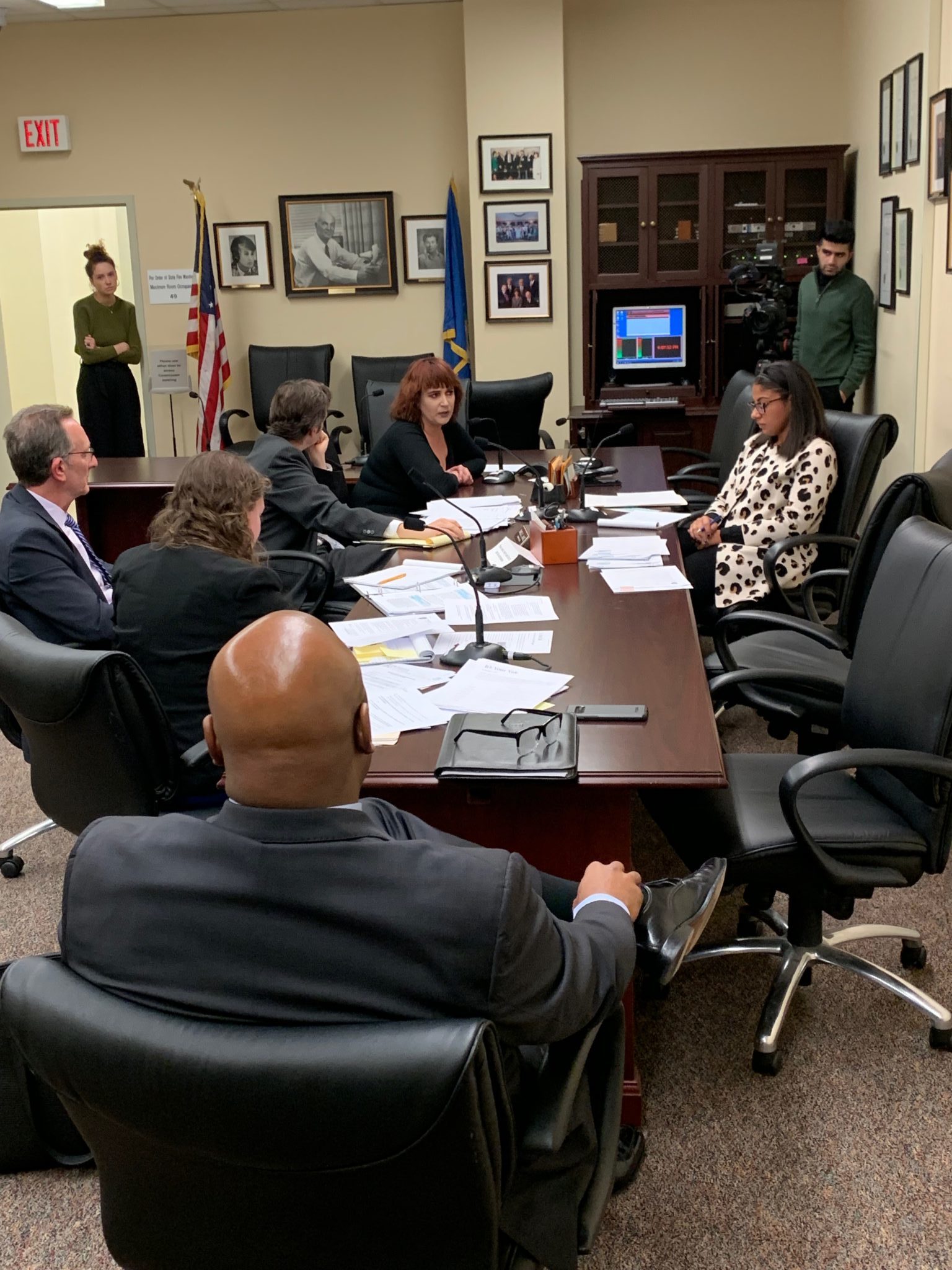
John Besche
More than a year after Sarah Braasch became the subject of national controversy for calling campus police on a black student sleeping in her common room, the graduate student is continuing her legal battle to obtain Yale Police Department’s body camera footage of the incident.
After a hearing in November, Connecticut Freedom of Information Committee Hearing Officer Danielle McGee requested reply briefs — summarizing each side’s legal argument in favor of or against the YPD’s claim to an exemption — from both Braasch and Yale before making a final decision sometime before July 2020. Braasch filed her brief on Jan. 3. Since the hearing, Braasch’s $5,000 retainer to the Randazza Legal Group has been exhausted, and she is raising funds to continue pursuing the footage in the event that Yale appeals a decision in her favor.
Braasch — who was then the sole resident of the 12th floor of the Hall of Graduate Studies — called the Yale Police Department’s non-emergency hotline in summer 2018 when she spotted a person asleep in the common area adjacent to her room. The incident gained notoriety as various media outlets decried what appeared to be an example of racial profiling — a white student calling the police on a black student. Braasch said at the hearing that she believes the footage will exonerate her and shed light on the Yale administration’s “grossly illegal misconduct.”
“I hope for a favorable decision from … McGee [shortly after the reply briefs are submitted],” Braasch wrote in an email to the News. “Even if we obtain a favorable hearing, I do not doubt that Yale will appeal. I am trying desperately to raise legal funds in anticipation thereof.”
The Yale Police Department has argued against releasing the night’s body cam footage and insisted that the video contains uncorroborated criminal allegations levied by Braasch against Ololade Siyonbola GRD ’19, the student who was asleep in the common room. Because Yale refused to hand over the footage, Braasch retained attorney Jay Wolman to represent her at the Connecticut Freedom of Information Committee, which will ultimately decide whether Yale must release the footage to Braasch. After the Nov. 4 hearing in Hartford, McGee requested that both sides issue post-hearing briefs summarizing their arguments by Jan. 17. Both parties have submitted their briefs to the commission and are awaiting a decision from McGee at some point before July.
In Yale’s reply brief, attorneys Aaron Bayer and Robyn Gallagher argued that Braasch’s complaint should be dismissed as the YPD did not violate the Freedom of Information Act. They insist that because the information is not available to the public at present and the footage contains uncorroborated allegations that could lead to defamation if released, the YPD is exempt from releasing it. The brief cites a section of the FOIA that refers to the balance between the public’s right to know and an individual’s need for confidentiality to qualify the balance that releasing this video could alter.
At the initial hearing in Hartford, YPD Chief Ronnell Higgins testified that none of the allegations in the tape — specifically harassment and trespassing — were corroborated, and that this upholds the YPD’s claim to an exemption.
“We believe that the FOIC will agree with our position,” University spokesperson Karen Peart told the News in an email.
In Braasch’s reply brief, Wolman maintained that the public nature of the YPD extends to the contents of the body cam footage per Connecticut state law. Therefore, the reply brief stated, Braasch is entitled to receive it and is within her rights to share it with the public.
“I’m looking forward to sunshine being shed on the record, and that my client can share her side of the story,” Wolman told the News in an interview at the hearing.
On her YouTube channel, Braasch has made clear that she intends to release the footage to the public should she receive a favorable decision to redeem her reputation by sharing her side of events.
The Connecticut FOIC convenes twice monthly to determine the fate of disputed public documents.
John Besche | john.besche@yale.edu







